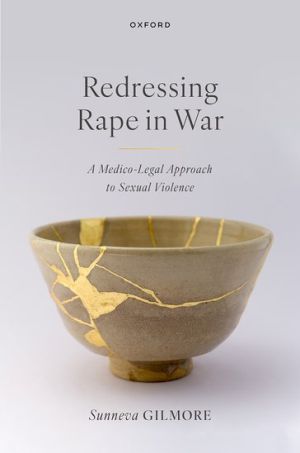
Sexual violence remains a pervasive reality of war. Redressing Rape in War presents an innovative medico-legal framework for redressing conflict-related sexual violence (CRSV), integrating insights from transitional justice, restorative justice, and medical scholarship. Drawing on empirical research across three diverse settings-including interviews with victims and professionals in transitional justice and healthcare-this book critically examines the evolution of existing reparative measures and advances an interdisciplinary approach to justice and redress.
Through a health-centred perspective, this book explores the forensic, psychological, physical, and social consequences of CRSV, emphasising the cascading effects of embodied trauma and its impact on victims' long-term well-being. Recognising that traditional forms of reparations struggle to address the breadth of harm inflicted, this book forwards a vulnerability-based framework that enhances their effectiveness by acknowledging the relational dimensions of harm, and the role of informal and self-repair mechanisms. By reimagining rehabilitation through a medico-legal lens, it demonstrates how forensic medicine can strengthen accountability, improve reparative outcomes, and offer tangible paths to recovery centred on quality of life.
Confronting the structural, cultural, and political conditions that sustain CRSV, Redressing Rape in War calls for reparations that not only address individual harm but also catalyse broader social and institutional transformation to ensure sustainable justice for victims and survivors of CRSV and beyond.